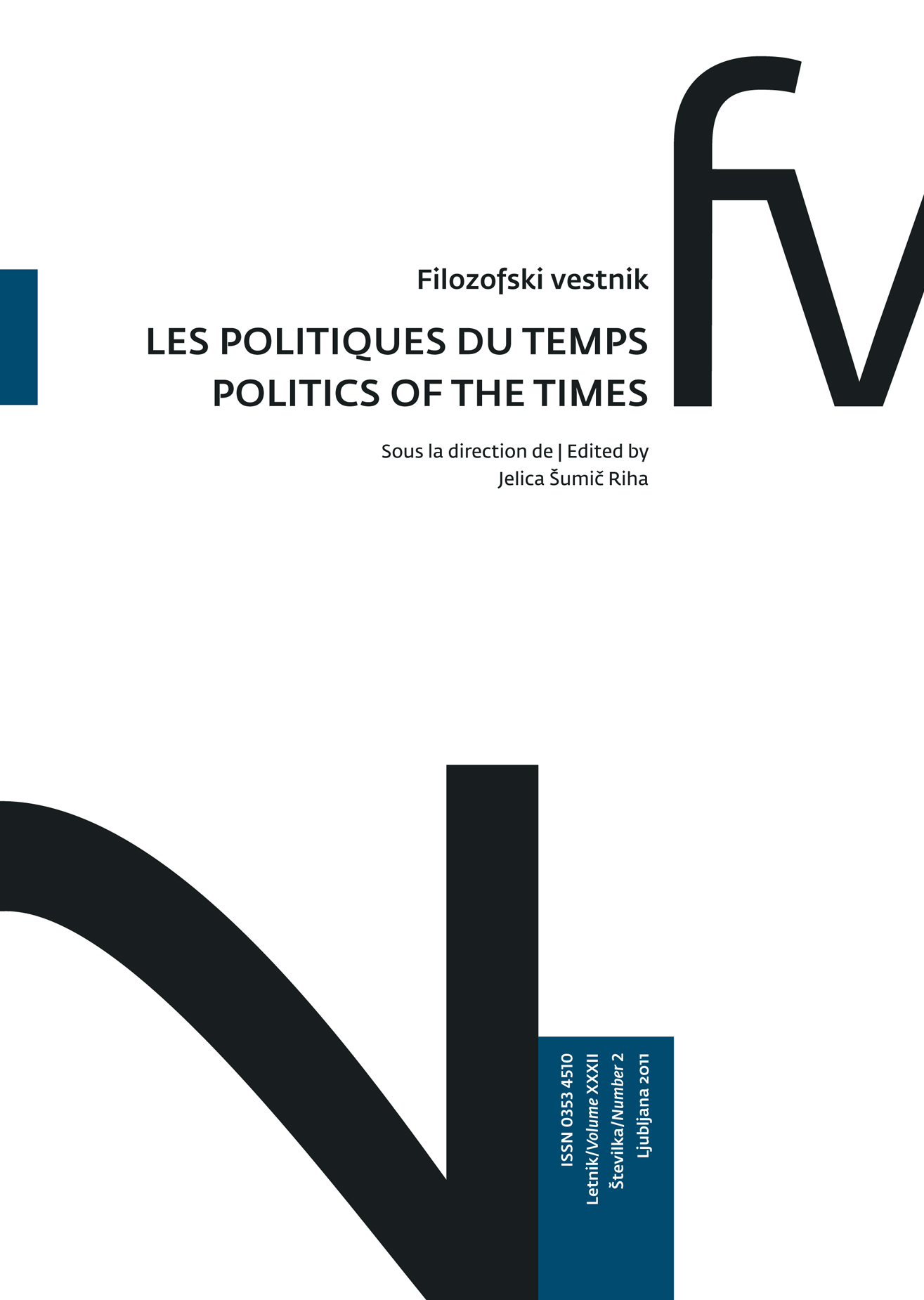Conférence de Ljubljana
Povzetek
While Logics of Worlds already emphasized that one’s participation in a process of truth is signalized by an affect and already pointed out some of the affects connected with these processes (enthusiasm, joy, pleasure, beatitude), the further elaboration of this topics remains the task of the third part of the Being and Event, which has yet to be written and is entitled The Immanence of Truths. The first part of the lecture discusses the very reasons for this work, its necessity, and its place in my opus thus far. The task of The Immanence of Truths is to elaborate the question of how somebody is incorporated into a truth-process, how this relates to the question of the subject and the very role of philosophy itself. The latter is not the process of truth in a similar manner as its four conditions, it does presuppose them, but not the other way around. A short sketch of the inner structure of The Immanence of Truths follows and the argument in favour of the transformation of the formal category of negation. The role of the paraconsistent logics in The Immanence of Truths is to conceptualize the process of truth. The aleatory, the contingent character of any event namely means that we have to insist that there is a cut and that the truth is in the position of an exception, but which, however, is not something untransmittable. Concerning the question of the transmission and the ineffable, I distance myself in relation to Plato’s as well as to Bergson’s treatment of this question. For me, the category of an exception is a dialectical category. It has to be thought on one hand as a negation, which is not a miracle of some sort, and on the other as something inner, immanent (perhaps that was aimed at by Lacan with the term ‘extimacy’). The negation is namely an operator which simultaneously divides and includes, it is also part of the dialectical thought which includes the contingent and is therefore not deterministic. Everything that has been said so far has consequences for the functions of philosophy and concerns the question of the relationship between philosophy and life. Philosophy for me as a discipline departs from the conviction that there are truths. It is triple, being at the same time the diagnostics of an age, the construction of the concept of truth, and the existential experience of true life i.e. the immanent experiment of what is a true life, “what is it to live”. This is signalled by the affect of true life and by the formula “to live as an immortal”, which does not entail any kind of sacrifice or recompense.Prenosi
Podatki o prenosih še niso na voljo.
Prenosi
Objavljeno
2012-09-05
Kako citirati
Badiou, A. (2012). Conférence de Ljubljana. Filozofski Vestnik, 32(2). Pridobljeno od https://ojs.zrc-sazu.si/filozofski-vestnik/article/view/3230
Številka
Rubrike
Une philosophie pour le 21eme siècle / Philosophy for the 21st Century
Licenca
Avtorji jamčijo, da je delo njihova avtorska stvaritev, da v njem niso kršene avtorske pravice tretjih oseb ali kake druge pravice. V primeru zahtevkov tretjih oseb se avtorji zavezujejo, da bodo varovali interese založnika ter da bodo povrnili morebitno škodo.
Podrobneje v rubriki: Prispevki





